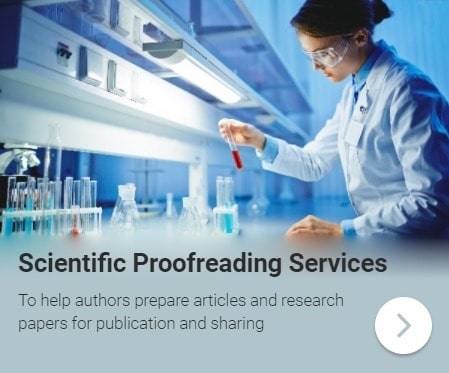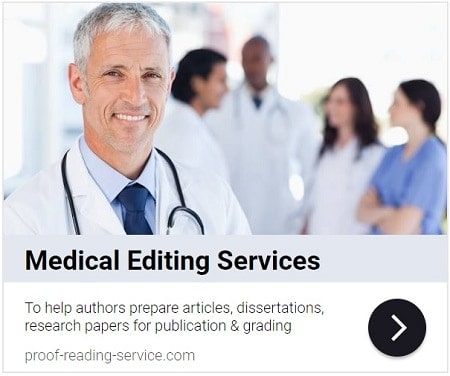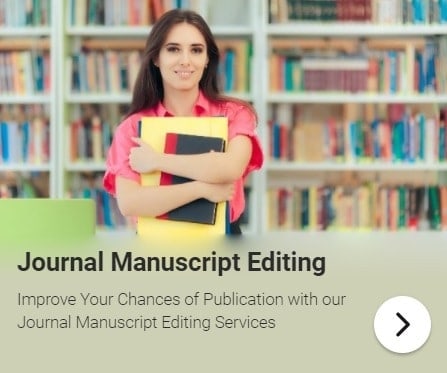3.2 Writing the Literature Review for the Proposal
The literature review you write for your proposal should be a more formal document than the preliminary reviews you may have written as you first read your key sources (see Section 2.1.3), although you can certainly make use of those initial reviews as you draft the formal review. The literature review for your proposal will in most cases also be the first draft of the literature review that will serve as the second chapter of your completed thesis (see Section 1.2.2 and Section 4.3). The review can instead be combined with other parts of the thesis (the introduction, for instance) or be presented more gradually throughout the thesis in association with relevant ideas, methods and results as they arise. In some cases, a student’s engagement with previous research can be established very briefly in a short section of the thesis that provides some background on what has already been done in an area and simply clarifies why the student’s topic and approach are valuable and interesting.
If a separate chapter is required, which will be the case for many theses, the chapter should give readers an accurate and thorough idea of previous scholarship on the topic, problem or phenomenon under investigation; it should summarise and interpret the content of each relevant source; it should evaluate each source critically with regard to the methods used, results achieved and conclusions reached by its author(s); it should reveal what you believe to be the gaps, misconceptions and limitations associated with the existing scholarship as a whole; and it should indicate how your research will provide what is lacking, establish new perspectives and move beyond the traditional limitations. Some of this may have been mentioned briefly in your proposal introduction, but in the literature review you need to discuss these matters in greater detail, make it absolutely clear where your work fits into the larger picture and set the stage for using key sources later in the thesis.
Even a chapter-length literature review for a doctoral thesis often does not need to be completely comprehensive – including, that is, every piece of scholarship ever written on your topic – unless your university, department or thesis committee insists on this or one of the goals of your thesis is specifically to provide a complete review of all scholarship in the area. You should, however, be familiar with all the scholarship dealing with the topic, problem or phenomenon you explore, and if very little has previously been written on it, you should no doubt include all the available scholarship in your review and perhaps even go beyond that to related areas that might enhance your research. Yet it is more likely that you will have to narrow your scope rather than broadening it, since most effective literature reviews are at least somewhat selective.
The criteria for selection vary from thesis to thesis because they are based not only on the specific research topic, but on the aims and objectives of the thesis, as well as on any research questions and hypotheses formulated and used in the thesis. So there will probably be one or more key themes that form the backbone of your discussion, providing both structure and direction, with each of the sources you review considered specifically and often exclusively in terms of those themes and your own thoughts about them. Without key ideas and a focus of this sort to guide your journey through numerous different sources, a literature review can quickly become an excessively long and disorganised trail of summaries and critiques that are more or less relevant to your thesis.
Although approaches to writing a literature review vary enormously depending on the thesis topic and methodology, a practical way to start is with a brief explanation of the topic, problem or phenomenon and a general statement about scholarship in the area (abundant, scarce, outdated, recent, limited in origin and approach, and so on) before moving on to particular sources. The first source you review should be a key one, whether it is the first piece written on the topic or simply the first one relevant to your thesis, and it should establish a position from which you can proceed. Let us say, for instance, that the thesis topic focuses on the ability of marginal commentary in medieval manuscripts to teach the researcher something about the readers of those manuscripts.
The first source reviewed will likely (and ideally should) take a strong position on or establish a tradition of thought about the topic, which in early scholarship on manuscripts would probably be to dismiss the importance of marginal annotations altogether (the Victorians, for instance, simply trimmed them off to ‘clean up’ medieval manuscripts when rebinding them). The sources reviewed after this initial source might trace a chronological path of the development of approaches to marginalia and their usefulness in research on readership and reception until arriving at works published in the twenty-first century that take the comments of medieval readers very seriously indeed and explore via those comments medieval conceptions of education, self-knowledge, heresy, gender and many other fascinating topics.
A chronological approach of the kind I have just described can often be effective in providing an extra layer of organisation or, perhaps more accurately, in tracing a meaningful route through complicated and sometimes slippery territory (the distinction between primary and secondary sources might also prove useful, on which see Section 7.1, as might that between theoretical and experimental studies). In the sciences, recent publications (usually those published within the last decade or two) are often prioritised, and some thesis committees will want the literature review to focus on recent scholarship only. No source is too old to be considered if it is important to your research, however, and if you are tracing the history of an idea or approach (one may, for example, want to go all the way back to medieval texts to see what they had to say about marginalia) or if very early sources are central because they establish a long tradition of thought relevant to your topic, they should definitely be included in your review. You need not treat every source you review in the same detail: some might require thorough summaries and a considerable amount of interpretation and discussion (those that significantly overlap your own research should receive such treatment, for instance), whereas others can simply be mentioned in passing or in groups or by focussing only on a couple of key points. The members of your thesis committee, your supervisor in particular, will almost certainly be able to assist you in deciding which sources should or should not be included and which among them might or might not require detailed treatment, as well as suggesting sources of which you may not be aware.
How you might best deal with each source may also change, however, as the results of your research mount up and you discover that you need to emphasise slightly different ideas and approaches than you originally envisioned. Remember that the literature review for the proposal is a draft that can be revisited and revised as necessary, which is not to say that it should be written or presented in an informal way. Like all parts of the proposal, it should be written in correct scholarly English and make consistent use of the editorial guidelines or style guide your department recommends or you and your supervisor have agreed upon, including complete and accurate references (for more information on formal English, formatting and style, and references, see Chapters 5–7). A literature review often closes with a brief summary, especially if the review is a long one, and a statement (or restatement) regarding how your thesis will contribute to the body of scholarship on the topic, problem or phenomenon. Finally, please note that neither ‘the literatures’ nor ‘the researches’ is an appropriate way of referring to the body of literature or scholarship dedicated to a particular topic, problem or phenomenon; ‘articles,’ ‘studies,’ ‘conferences,’ ‘papers’ and ‘books’ are all acceptable in the plural, but when using ‘the literature’ or ‘the research’ to describe such a body of work, the singular is the correct form.
Why PhD Success?
To Graduate Successfully
This article is part of a book called "PhD Success" which focuses on the writing process of a phd thesis, with its aim being to provide sound practices and principles for reporting and formatting in text the methods, results and discussion of even the most innovative and unique research in ways that are clear, correct, professional and persuasive.
The assumption of the book is that the doctoral candidate reading it is both eager to write and more than capable of doing so, but nonetheless requires information and guidance on exactly what he or she should be writing and how best to approach the task. The basic components of a doctoral thesis are outlined and described, as are the elements of complete and accurate scholarly references, and detailed descriptions of writing practices are clarified through the use of numerous examples.
The basic components of a doctoral thesis are outlined and described, as are the elements of complete and accurate scholarly references, and detailed descriptions of writing practices are clarified through the use of numerous examples. PhD Success provides guidance for students familiar with English and the procedures of English universities, but it also acknowledges that many theses in the English language are now written by candidates whose first language is not English, so it carefully explains the scholarly styles, conventions and standards expected of a successful doctoral thesis in the English language.
Individual chapters of this book address reflective and critical writing early in the thesis process; working successfully with thesis supervisors and benefiting from commentary and criticism; drafting and revising effective thesis chapters and developing an academic or scientific argument; writing and formatting a thesis in clear and correct scholarly English; citing, quoting and documenting sources thoroughly and accurately; and preparing for and excelling in thesis meetings and examinations.
Completing a doctoral thesis successfully requires long and penetrating thought, intellectual rigour and creativity, original research and sound methods (whether established or innovative), precision in recording detail and a wide-ranging thoroughness, as much perseverance and mental toughness as insight and brilliance, and, no matter how many helpful writing guides are consulted, a great deal of hard work over a significant period of time. Writing a thesis can be an enjoyable as well as a challenging experience, however, and even if it is not always so, the personal and professional rewards of achieving such an enormous goal are considerable, as all doctoral candidates no doubt realise, and will last a great deal longer than any problems that may be encountered during the process.
Interested in Proofreading your PhD Thesis? Get in Touch with us
If you are interested in proofreading your PhD thesis or dissertation, please explore our expert dissertation proofreading services.


Services
PhD Dissertation Proofreading
Our PhD dissertation proofreaders specialise in improving grammar, sentence structure, citations, references, clarity, logical flow and readability.
Master’s Dissertation Proofreading
To avoid failure and its consequences, send your dissertation to our master’s dissertation proofreading service.
Scientific Dissertation Proofreading
Our scientific proofreaders specialise in correcting and perfecting the language, editorial styles and references across all science fields.
Headquarters
Dissertation-Proofreading.com
Allia Future Business Centre
The Guildhall
Market Square
Cambridge
CB2 3QJ
United Kingdom
More Expert Proofreading Services
Journal Editing
Journal article editing services
PhD Thesis Editing
PhD thesis editing services












